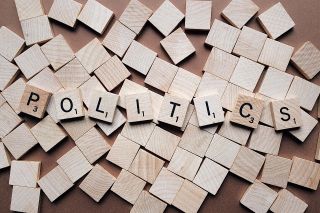Teaching local politics, especially during election season, can be challenging. Doing so in this hyper-partisan era is nearly impossible. Too often United States government topics and national politics distract from our diverse 50 state and more than 89,000 county and local governments. But we need to distinguish the differences as well as respect experiential learning approaches to teaching local politics prior to municipal elections.
State and local government is hardly taught in high schools and it’s rarely required at universities. As an American Politics subfield within political science, state and local government gets little academic attention. But large state university systems offer courses since their capital governments pass significant legislation. Texas, California, and New York public institutions have various classes and several textbook publishers include chapters about these respective states’ politics.
But how can educators teach local politics? To begin, I assign a basic text such as Terry Christensen and Tom Hogen-Esch’s “Local Politics” and a general state and local government textbook such as Christopher Simon, Brent Steel, and Nicholas Lovrich’s “State and Local Politics” as well as Robert Putnam’s “Bowling Alone” on community engagement activities.
I also focus on local media so students recognize community issues. But this requires some innovation. Reading area newspapers, following independent online news sources such as patch.com, listening to local radio, and watching local evening news, are starting points. Social media can be helpful too, especially Twitter and Muck Rack. Local reporters usually have accounts and post news immediately. I suggest students follow journalists’ accounts and subscribe to online news sites since some offer student subscription rates.
Sources to consider:
- Assigned readings from local politics texts
- Local newspapers, independent sources such as patch.com
- Social media, especially reporters’ Twitter and Muck Rack accounts
For the first class, I have to cover media literacy through news sources and social media. Addressing editorials and opinion pieces is a must since some students confuse op-eds for articles. We also discuss local issues such as public safety, education, and economic development. When we share similarities among municipalities, topics are hardly abstract. Students learn how public officials address these concerns differently or similarly. And by inviting public officials to discuss these issues with students, especially during online classes, it all leads to a spirited dialogue.
As a local politics class, we have to discuss the electoral process. In order to participate in closed primary elections, I mention that one must declare their party affiliation to the local registrar of voters. I emphasize that voters can split-ticket or select candidates across party lines in general elections. But students regularly suggest it’s unfair for unaffiliated voters, as many are not registered with a party. Students can consider Democratic or Republican parties, but in some municipalities there are Green, Libertarian and Socialist parties.
Students should know the differences and consider candidates as well as party platforms. In most municipalities there’s one dominant party, and primary elections are often the presumptive election before a general election.
Course themes:
- Following current state and local issues
- Periodical, media literacy, and social media discussion
- Political party primaries, state and local party committees
- Invite elected officials for class discussions, especially for online sessions
- Students attend in-person or online municipal board or party committee meetings
- Students complete public meeting reports and share their findings with the class
States and municipalities have different political party systems. Connecticut, for example, has local party committees that nominate and endorse candidates for their party line before a primary election. These local conventions distinguish endorsed candidates versus petitioning candidates. I require students to attend and write reports about party committee or municipal hall meetings so they recognize partaking in the process matters. Since many meetings are online due to the pandemic, students can view these sessions. In fact, a journalism faculty colleague and I conducted a comparative analysis about area municipal hall online meetings.
When students complete their reports, they discuss their findings with the class. They are struck at the generational gap of officials and participants at these meetings. I respond that older voters generally have more time if they are retired and they share resources and networks for campaign donations. Plus, national issues tend to gain younger voters’ attention. Thankfully, a student or two are involved in a local party committee or municipal board, and they reinforce my point that their engagement can make a difference. Some also intern for local candidates by registering for upper-level internship courses, which is effective for networking and career development.
Ultimately, I find experiential learning can be inspirational for my classes. When students share their experiences, I cherish their learning through directly connecting with local politics.

